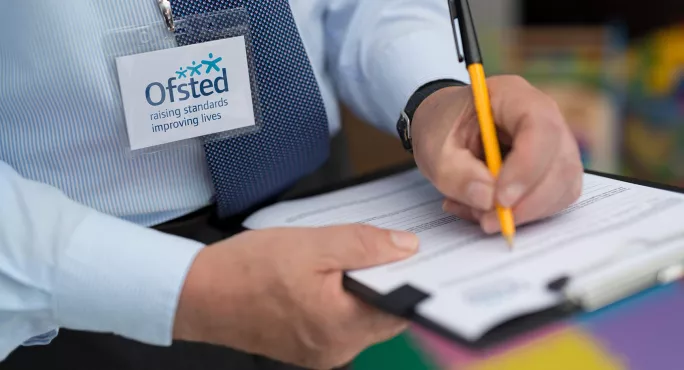
Concern over inspections of special schools, MPs told

Inspections of special schools are not always being carried out by âspecialistâ inspectors, a headteachersâ union has told MPs.
Speaking to the Commons Education Committee today, Nic Crossley, the special educational needs and disabilities (SEND) representative at the Association of School and College Leaders, also said there was a need to âupskill inspectorsâ and for there to be âgreater consistencyâ.
And Ms Crossley, who is also chief executive of Liberty multi-academy trust, added: âWe do need to have a real focus on SEN by SEN practitioners, and itâs not enough to just leave it to the [SEND] area inspections and then say that SEN has been covered.â
- Announcement:ÌęMore places and new national SEND standards
- SEND review:ÌęEvery proposal the governmentâs Green PaperÌęput forward last year
- Three-year wait:ÌęWilliamson launches SEND review
Ìę
She said that inspections needed to be âconducted by people that come from the sectorâ, and to avoid being âtokenisticâ.
MPs on the committee were also told that the current approach to SEND knowledge in teacher training was âminimalistic in the extremeâ, and ânot sufficientâ.
The comments came as part of a non-inquiry session held on SEND this morning.
Addressing her issues with inspection, Ms Crossley said that when special schools are inspected âthey donât always get that specialist inspector who has come from an SEN backgroundâ.
âI do think that Ofsted are cognisant of this and that they are recognising that, as with anybody, weâre all suffering around capacity and staffing,â she added.
âSo there is a need to upskill inspectors, there needs to be that greater consistency. And I think that, from what weâve noticed, particularly around the revisions to the area inspections, we do need to have a real focus on SEN by SEN practitioners, and itâs not enough to just leave it to the areas inspections and then say SEN has been covered.
âWe do need to make sure that in normal day-to-day operations of school inspections, it does have a really targeted focus on SEN that is not tokenistic and really delves into the detail, but itâs also undertaken and conducted by people that come from the sector.â
Warning on ITT approach to SEND
Initial teacher training (ITT), and the provision of SEND knowledge within this, was another topic covered during the session.
Dr Daniel Stavrou, assistant director for education at the Council for Disabled Children, highlighted how Department for Education data showed that a large portion of teachers did not believe there was sufficient training on SEND on the ITT core curriculum framework.
âI took the trouble to look at [this] again a couple of days ago. The approach to SEND knowledge is minimalistic in the extreme and surely is not sufficient,â he added.
Ian Mearns MP, standing in as chair of the committee in the absence of Robin Walker, said that it appeared to him that âif we spent a little bit more time in initial teacher training, you might get more teachers thatâve decided to go into special educational needs as a specialismâ.
Ms Crossley concurred, adding: âSometimes in the sector, weâre relying on the goodwill of people to step up and do that role rather than seeing it as a real career choice. So, yes.â
âWelcome step backâ on SEND review journey
Tim Nicholls, head of influencing and research at the National Autistic Society, said he had been looking at the progression of the SEND review and had seen âa bit of a scaling back of the ambition over the timeâ.
He said that in some cases, this had been âwelcomeâ, as it showed that concerns from parents were being listened to.
âMandatory mediation was one of the biggest ones there that we thought could be absolutely catastrophic because the power dynamics in that situation are already heavily skewed against families.â
One of the proposals in the SEND Green Paper was for mandatory mediation before parents could register an appeal at a tribunal.
This was then pushed back in the SEND improvement plan, with the document saying: âWe remain committed to delivering a tailored list of placements and proposals for mandatory mediation, as well as developing a national system of funding bands and tariffs.
âHowever, we recognise the challenges and risks involved in such a move, and will review and test these policies carefully through the change programme to ensure that they work and do not create unintended consequences for families.â
You need a Tes subscription to read this article
Subscribe now to read this article and get other subscriber-only content:
- Unlimited access to all Tes magazine content
- Exclusive subscriber-only stories
- Award-winning email newsletters
- Unlimited access to all Tes magazine content
- Exclusive subscriber-only stories
- Award-winning email newsletters
You need a subscription to read this article
Subscribe now to read this article and get other subscriber-only content, including:
- Unlimited access to all Tes magazine content
- Exclusive subscriber-only stories
- Award-winning email newsletters
- Unlimited access to all Tes magazine content
- Exclusive subscriber-only stories
- Award-winning email newsletters
topics in this article



